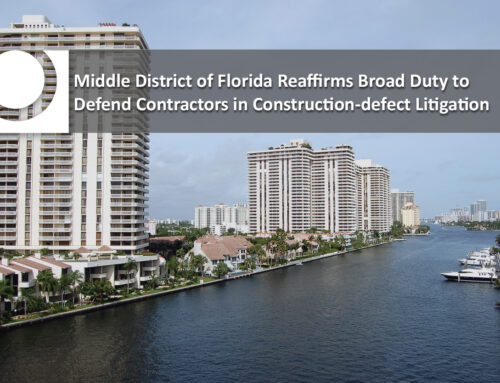Do you read your insurance policy? Do you even have a copy of it? If you are like most insureds, the answer is no. If you answered yes, let me ask a third question: Do you have all of the endorsements and have you read those endorsements, comparing them to the language in your original policy to determine what is being added or omitted from coverage? If you are like most insureds, your head is spinning right now.
Property policies are complicated contracts that set forth the obligations of the insurer upon the occurrence of any number of risks that could foreseeably damage property. But here’s the deal. Insurance contracts include many, many exclusions that can bar coverage if the unwitting business owner fails to take the proper precautions to ensure that various exclusions won’t apply. As circumstances change, so might your coverage.
Case in point — Lui v. Essex Insurance Co. (Wash. Ct. App. Apr. 6, 2015). In this case, a commercial-building owner evicted its tenant one month before a water pipe froze and burst, causing substantial damage to the building. Because the building was unoccupied, the claim was excluded based on a “Change of Conditions” endorsement, which limited coverage in the event of vacancy. The insureds argued, unsuccessfully, that the exclusion could be read to exclude coverage only “after 60 consecutive days of vacancy.” Even under Washington’s famously insured-friendly caselaw, however, this argument lost.
A quick read through this endorsement would have informed the owner that, in the event of an impending vacancy of any duration, prior approval could have been obtained from the insurer to continue regular coverage throughout the vacancy period. This safest path, of course, requires planning ahead of a loss. Had the owner reviewed its business plan and strategized a few simple troubleshooting measures for very foreseeable business circumstances, like an eviction or vacancy, the owner could have asked for an endorsement, perhaps paying a bit more, to cover vacant property.
Insureds should promptly notify their broker of any change in condition and ask if the change impacts coverage. Learn from the owners in this case and retain an insurance-coverage specialist to review your business plan and to assess troubleshooting measures that will ensure constant insurance coverage for your commercial properties.
Opinion reprinted from WestlawNext with permission of Thomson Reuters. If you wish to check the currency of this case by using KeyCite on WestlawNext, please visit www.next.westlaw.com.



